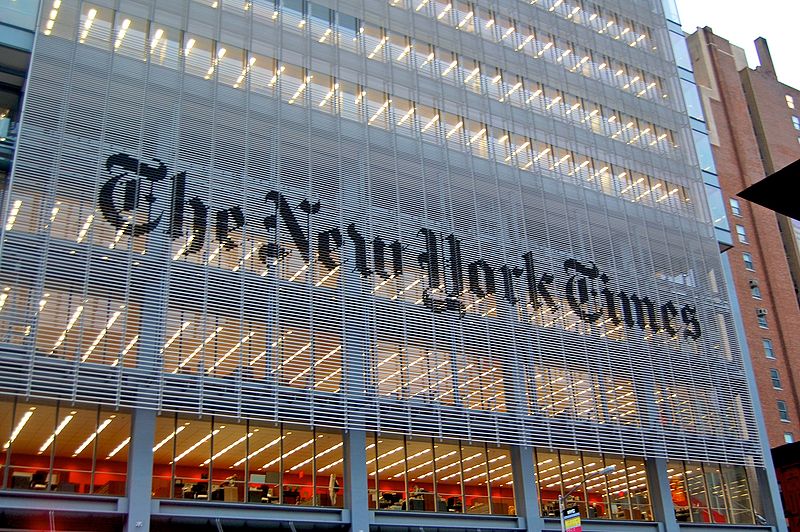The coming age of hyper-transparency
 Thursday, January 31, 2013 at 8:38AM
Thursday, January 31, 2013 at 8:38AM  In a huge simulation that we just ran at Wikistrat (and in several previous ones), this issue of hyper-transparency keeps popping up as a magnificently powerful shaping dynamic in future politics - as in, you can corrupt but you cannot hide (for long).
In a huge simulation that we just ran at Wikistrat (and in several previous ones), this issue of hyper-transparency keeps popping up as a magnificently powerful shaping dynamic in future politics - as in, you can corrupt but you cannot hide (for long).
NYT reporting here that the paper's networks have been subjected to massive hacking efforts directed from China and that these repeated assaults were timed in response to the paper running that nasty expose on how Chinese political elites (and particularly the family of Premier Wen Jiabao) made - literally - billions on an insider deal involving what is now the world's largest insurance company.
Naturally, the Chinese government thinks it's sending a signal big-time - as in, don't mess with our political crooks. Like any mafia, the Chinese Communist Party believes intimidation will always save its skin. And when the masses of Chinese were too busy starving or struggling through their lives (see, Mao), there was no question that it worked.
But things changed with Deng Xiaoping, who knew that what he set in motion would both make China a powerful economic giant and eventually cost the party its dictatorship. This is why Deng is a personal hero of mine - a great and wise man who changed world history for the better.
No, his legacy is not yet complete, and Deng, who was one of those who approved the Tiananmen Square massacre, knew full well that timing was everything. So, no illusions on his part about how long this would take.
But that hyper-transparency is arriving already across China. What the Party wants hidden is getting far harder to hide. Bravo Times!
So yeah, the CCP remains fearful of its citizenry and now it needs to fear the NYT as well, because it is all one vast conspiracy called globalization and connectivity and transparency and markets and democracy and super-empowered individuals. It is a conspiracy hatched over 200 years ago by a far-sighted bunch of genuine revolutionaries.
And it's coming for you, Mr. Apparatchik - and your little (running) dog too!
As always, when in doubt, resort to nationalism - the last refuge of scoundrels the world over. So the Party justifies this as America's doing/meddling/etc.
But rest assured, when they come for the Wens and his relatives and everybody else who stole from the Chinese people, they'll all be wearing Chinese faces.
The real "virus" has already infected too many Chinese to be stopped now. These people are among the most rabid capitalists in the world, and you've got to respect everything that goes into that.
But capitalism unbound is one nasty creature, which is why democracy is the only antidote.
And that's why the Chinese Communist Party is totally screwed, no matter how big a fight it puts up.
The clock is ticking, my friends.
 China,
China,  connectivity,
connectivity,  democracy,
democracy,  development | in
development | in  Citation Post |
Citation Post |  Email Article |
Email Article |  Permalink |
Permalink |  Print Article
Print Article 









Reader Comments (4)
"But capitalism unbound is one nasty creature, which is why democracy is the only antidote."
Singpore teaches that capitalism doesn't need democracy.
Petruk,
You might want to pay more attention to Singapore's recent politics. As in the case of every other Tiger, about 4-5 decades into single-party rule, the edifice is cracking all around.
Singapore proves nothing. Clock close to midnight there on single-party rule, just like previously in Japan and Korea and Taiwan and Philippines and Indonesia and now Malaysia.
The pattern is enormously clear.
You don't want to be in the business of apologizing for autocrats. Puts you on the wrong side of history - and "the people."
Petruk has something of a point but only if your evaluation horizon is lower than 40-50 years. For a governing system, is that an appropriate time horizon? I think not, but the case against that evaluation method needs to be made and explicitly so else we'll be having this argument forever and talking past each other. Why is a 40-50 year horizon a bad thing? For the middle aged and older men who decide such things, it's a lifetime.
Singapore proves nothing. It's a tiny country that offers certain features such as banking and corporate headquarters to multinational companies. A real niche player on the international scene. Singapore gets a lot more notice than it deserves in the west because of a it's very large English-speaking population. However, if you're a Western company and your Asian strategy emanates from Singapore this probably shows that your company is not yet prepared to deal with the complex issues otherwise faced in the "real" Asian region.